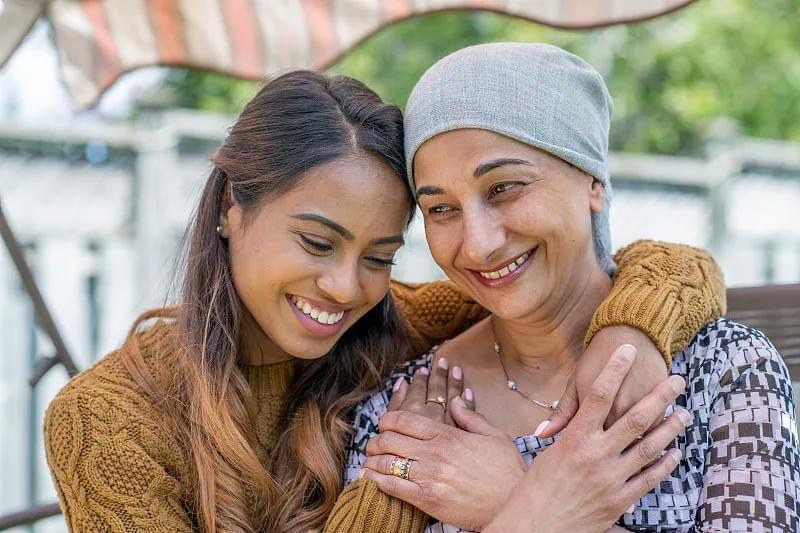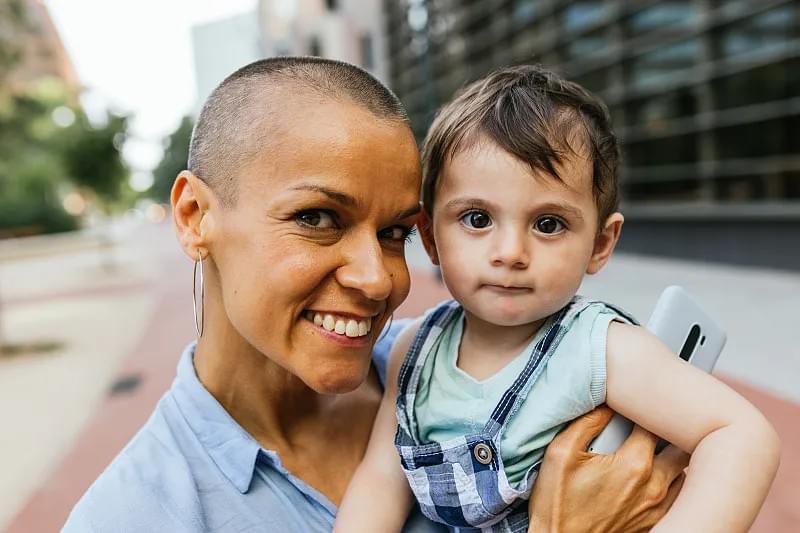For many cancer survivors, overcoming the disease is a profound victory. Yet, the journey doesn’t always end with remission. One of the lasting impacts of cancer treatment—particularly chemotherapy, radiation, or certain surgeries—is the potential loss of fertility. For individuals and couples who dream of building a family, this can be a deeply emotional challenge. Fortunately, advances in reproductive medicine and growing support for alternative family-building options have made surrogacy a viable and hopeful pathway. This article explores how surrogacy offers cancer survivors a chance to experience parenthood, the emotional and medical considerations involved, and what steps to take when exploring this option.
Why Fertility Preservation Is Often Overlooked During Cancer Treatment
When first diagnosed with cancer, patients are understandably focused on survival. Treatment plans move quickly, and discussions about future fertility are sometimes sidelined. While options like egg or sperm freezing are available, not every patient has the time or medical stability to pursue them before starting therapy. In fact, studies show that only a fraction of cancer patients receive adequate counseling on fertility preservation before treatment begins.
This gap leaves many survivors facing infertility after they’ve healed. For women, treatments can damage the ovaries or uterus, leading to premature menopause or an inability to carry a pregnancy. Men may experience reduced sperm count or quality. In some cases, pregnancy may be medically inadvisable due to the risk of cancer recurrence or complications from prior treatments.
Despite these challenges, the desire for biological children remains strong. This is where surrogacy enters the picture—not as a second choice, but as a powerful, intentional route to parenthood.

Understanding Surrogacy: How It Works for Cancer Survivors
Surrogacy is an arrangement in which a woman (the surrogate) carries and gives birth to a baby for another individual or couple (the intended parents). There are two main types:
- Traditional Surrogacy: The surrogate’s own egg is used, making her the biological mother. This method is less common today due to legal and emotional complexities.
- Gestational Surrogacy: The embryo is created using the intended parents’ or donors’ eggs and sperm through in vitro fertilization (IVF), then transferred to the surrogate’s uterus. This is the most common and legally secure form.
For cancer survivors, gestational surrogacy is typically the preferred option. If the survivor had eggs or sperm frozen before treatment, those can be used to create embryos. Even if fertility preservation wasn’t possible, donor eggs or sperm can be combined with a partner’s genetic material to build a family.
The process generally involves:
- Medical and psychological screening
- Legal contracts outlining rights and responsibilities
- IVF cycle to create embryos
- Matching with a qualified gestational carrier
- Embryo transfer and prenatal care
- Birth and legal parentage establishment
Many fertility clinics now offer integrated surrogacy programs that guide patients through each step, providing emotional support and coordination with agencies and legal experts.
Emotional and Psychological Considerations
Choosing surrogacy after cancer is not just a medical decision—it’s an emotional journey. Survivors may grapple with feelings of loss, guilt, or uncertainty about whether they “deserve” to become parents. Others may worry about how their medical history will affect the surrogacy process or the health of the child.
Counseling is a crucial component of the surrogacy journey. Speaking with a therapist who specializes in reproductive psychology can help intended parents process their cancer experience, manage anxiety, and prepare for the unique dynamics of surrogacy. Open communication with the surrogate is also essential to build trust and ensure a positive experience for everyone involved.
It’s also important to recognize that surrogacy doesn’t diminish the bond between parent and child. Many cancer survivors report that going through surrogacy deepens their appreciation for parenthood and strengthens their resilience.

Medical Feasibility and Safety: What Survivors Need to Know
One of the first questions cancer survivors ask is: Is surrogacy safe for me and my future child? The answer depends on several factors, including the type of cancer, treatment received, time since remission, and current health status.
Most fertility specialists recommend waiting at least two years after cancer treatment before pursuing pregnancy-related plans, especially for hormone-sensitive cancers like breast cancer. This waiting period allows time to monitor for recurrence and ensures the body has stabilized.
For women who cannot carry a pregnancy but still have viable eggs, surrogacy allows them to be genetically connected to their child. Men who have stored sperm or regained fertility can also pass on their genes. In cases where biological material wasn’t preserved, donor gametes offer another path forward.
Reputable surrogacy agencies and fertility clinics conduct thorough medical reviews and often require clearance from the survivor’s oncologist. This ensures that the decision to pursue parenthood aligns with long-term health goals.
Legal and Ethical Aspects of Surrogacy Post-Cancer
Surrogacy laws vary widely by country and even by state within the U.S. Some regions fully support gestational surrogacy with clear legal frameworks, while others restrict or ban it entirely. It’s essential for cancer survivors to work with legal professionals experienced in reproductive law to draft enforceable agreements that protect all parties.
Key legal elements include:
- Establishing parentage before birth (via pre-birth orders)
- Defining financial responsibilities
- Outlining medical decision-making during pregnancy
- Addressing potential complications or disputes
Ethically, surrogacy emphasizes autonomy, informed consent, and mutual respect. Agencies often screen surrogates for physical and mental health, ensuring they understand the commitment and are motivated by altruism or fair compensation—not coercion.
For cancer survivors, transparency with the surrogate about medical history is vital. While full disclosure is encouraged, it should be balanced with privacy and done in a way that fosters trust, not fear.

Success Stories: Cancer Survivors Who Became Parents Through Surrogacy
Real-life stories highlight the transformative power of surrogacy. Take Sarah, a breast cancer survivor diagnosed at 32. After freezing her eggs before chemotherapy, she entered remission and, five years later, used her stored eggs and her partner’s sperm to create embryos. With the help of a gestational carrier, she gave birth to healthy twins.
Or consider James, a testicular cancer survivor who lost fertility after treatment. He and his wife chose donor eggs and his preserved sperm to create an embryo. Their surrogate carried the pregnancy to term, and they welcomed a daughter they now cherish.
These stories are not rare. Fertility clinics report increasing numbers of cancer survivors turning to surrogacy as awareness grows and support systems improve. Support groups, online forums, and nonprofit organizations also provide valuable resources and community.
How to Begin Your Surrogacy Journey After Cancer
If you’re a cancer survivor considering surrogacy, here are practical steps to get started:
- Consult Your Oncologist: Obtain medical clearance and discuss any risks related to your cancer history.
- Visit a Fertility Specialist: Review your reproductive options, including the viability of stored gametes or the need for donors.
- Choose a Reputable Agency or Clinic: Look for programs with experience in working with cancer survivors and international clients.
- Seek Counseling: Address emotional concerns and prepare for the psychological aspects of surrogacy.
- Understand Legal Requirements: Work with a reproductive lawyer to navigate contracts and parentage laws.
- Connect with Support Networks: Join survivor communities or surrogacy groups to share experiences and advice.
Patience and self-compassion are key. The path may take time, but many survivors find that the journey to parenthood through surrogacy is deeply rewarding.

Conclusion: Reclaiming Hope and Building a Family
Cancer can alter life in profound ways, but it doesn’t have to define one’s future. For survivors who long to become parents, surrogacy offers a scientifically advanced, emotionally fulfilling option. It allows individuals to reclaim agency over their reproductive journey and build families rooted in love, resilience, and hope.
As awareness grows and reproductive technologies evolve, more cancer survivors are discovering that healing doesn’t end with remission—it can extend into the joyful chapters of parenthood. With the right support, medical guidance, and determination, the dream of holding your child in your arms is not only possible—it’s within reach.
If you or a loved one is a cancer survivor exploring family-building options, know that you’re not alone. Surrogacy may be the bridge between survival and the next chapter of your story.
